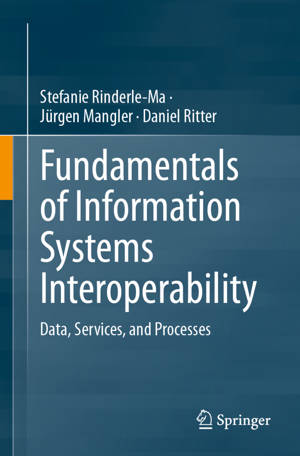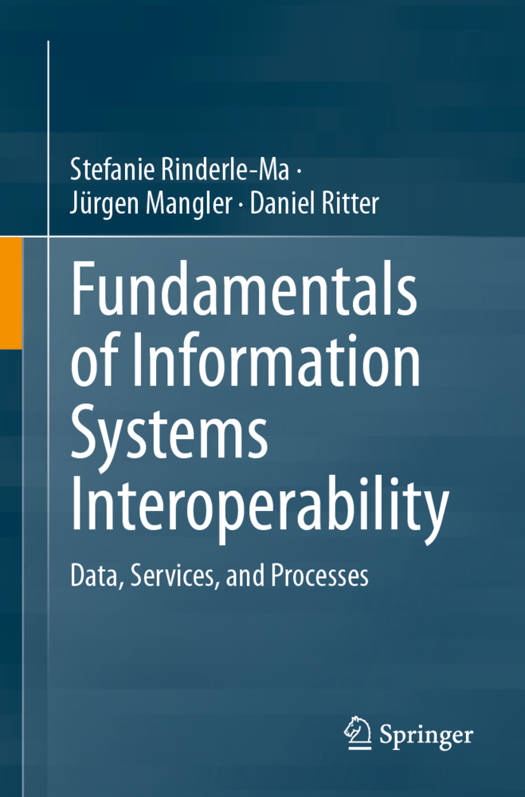
- Retrait gratuit dans votre magasin Club
- 7.000.000 titres dans notre catalogue
- Payer en toute sécurité
- Toujours un magasin près de chez vous
- Retrait gratuit dans votre magasin Club
- 7.000.0000 titres dans notre catalogue
- Payer en toute sécurité
- Toujours un magasin près de chez vous
Fundamentals of Information Systems Interoperability
Data, Services, and Processes
Stefanie Rinderle-Ma, Jürgen Mangler, Daniel RitterDescription
This book presents fundamental concepts and technologies to tackle interoperability between information systems. It details interoperability at the data, service, and process level, and combines theoretical foundations with hands-on presentation of technologies to enable the development of sound and practical integration.
Chapter 1 details general interoperability challenges and describes the structure of the book. To start with, Chapter 2 presents technologies for the exchange of data between two selected and highly relevant data formats, i.e., relational databases and XML. Next, Chapter 3 explains concepts for schema matching and mapping and data integration as well as the technological basis for implementing them based on query and transformation languages like XPath and XSLT. Chapter 4 then turns to service interoperability and explains two related technologies - REST and GraphQL - in detail. In Chapter 5, fundamentals for designing process orchestrations at the conceptual level are presented, focusing on how to model process orchestrations and how to verify their correctness and soundness, and showing BPMN as the de facto modeling standard. Chapter 6 then details the concepts and languages for the implementation of process orchestrations, including the presentation of execution languages for process orchestrations that are equipped with a formal semantics, e.g., Workflow Nets, the Refined Process Structure Tree, and CPEE Trees. Subsequently, Chapter 7 focuses on the growing number of distributed, loosely coupled, and often non-interoperable applications through the concepts of enterprise application integration and explains these by an implementation in CPN Tools and by two case studies. Eventually, Chapter 8 is lifting the orchestration and integration concepts and technologies to the choreography level by dealing with the interoperability between different process orchestrations. Chapter 9 concludes the book by featuring success factors for interoperability projects. It also provides a range of open research directions for interoperability such as compliance, sensor fusion, and blockchain technologies.
The book is mainly intended as a textbook to be used for developing and teaching courses on interoperability and integration. To this end, it is accompanied by a Web site with additional teaching materials. It also spans a bridge from researchers to graduate students and practitioners by providing a deep understanding on practical interoperability challenges and solutions. The focus here is put on de facto standards and open-source systems and tools to enable interoperability solutions at low cost.
Spécifications
Parties prenantes
- Auteur(s) :
- Editeur:
Contenu
- Nombre de pages :
- 281
- Langue:
- Anglais
Caractéristiques
- EAN:
- 9783031483219
- Date de parution :
- 19-04-24
- Format:
- Livre broché
- Format numérique:
- Trade paperback (VS)
- Dimensions :
- 156 mm x 234 mm
- Poids :
- 421 g

Les avis
Nous publions uniquement les avis qui respectent les conditions requises. Consultez nos conditions pour les avis.






